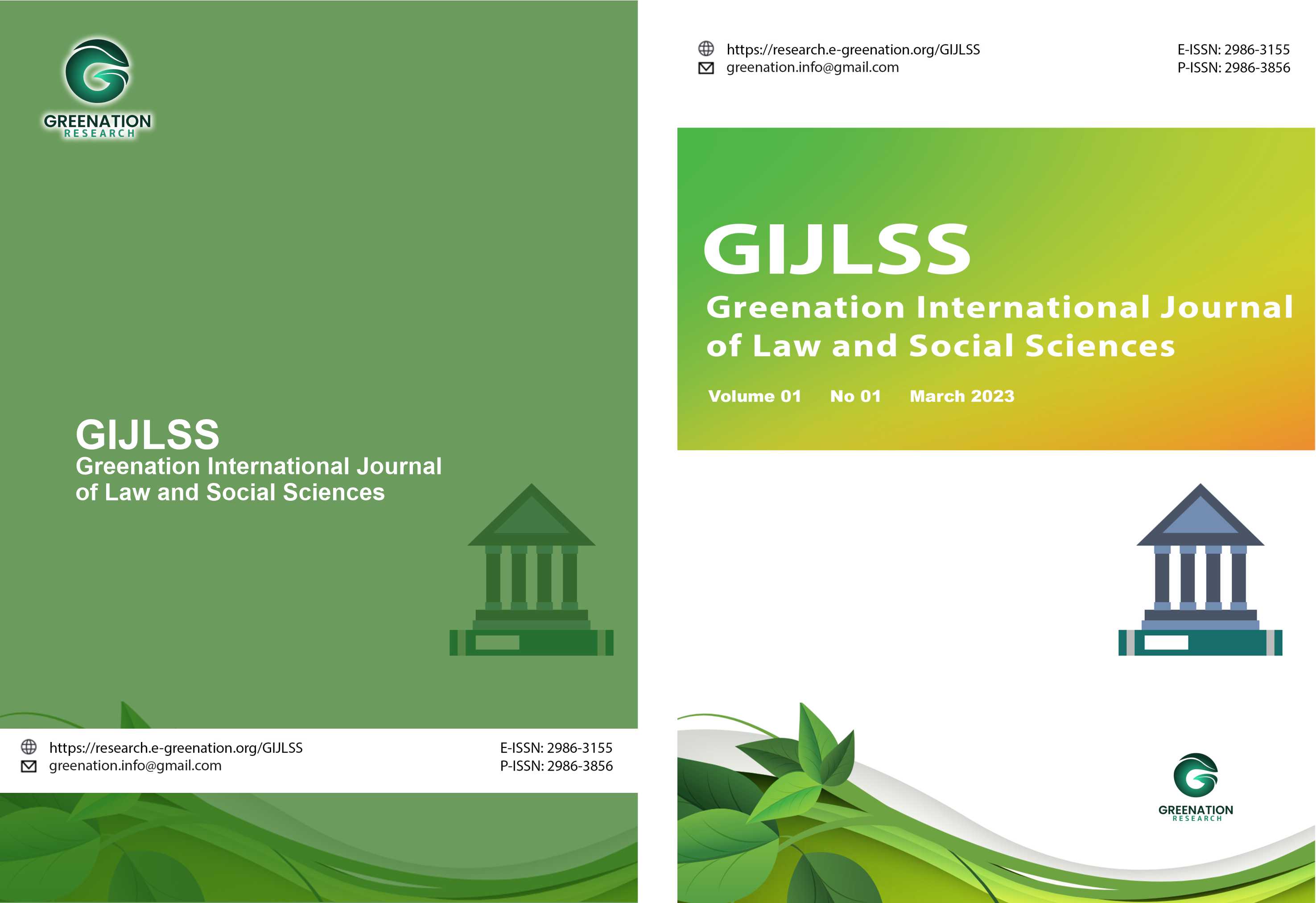Duties and Authorities of the Consumer Dispute Resolution Agency and its Position in the Perspective of the Judicial System in Indonesia
DOI:
https://doi.org/10.38035/gijlss.v3i1.359Keywords:
Agency, Dispute Resolution, Tasks, Authority, Judicial SystemAbstract
The Consumer Dispute Resolution Agency (BPSK) is an agency specifically established to resolve consumer disputes outside the courts. Normatively, there are many conveniences provided by law to consumers in resolving their disputes through BPSK. However, in its implementation, this is not the case because consumers often experience various difficulties in resolving disputes through BPSK, especially related to the trial process, legal remedies that can be submitted, and the binding force of its decisions. This is more due to its position, which is not appropriate and is outside the Indonesian judicial system, which is based on Law Number 48 of 2009 concerning Judicial Power. There are multi-functional duties and authorities, namely executive functions, judicial functions, and advocacy functions. It can be said that from a judicial perspective, BPSK is quasi.
References
Abubakar, L., & Handayani, T. (2021). Integrated Alternative Dispute Resolution Institutions in the Financial Services Sector: Dispute Resolution Efforts in Consumer Protection Framework. Yustisia Jurnal Hukum, 10(1), 32.
Ahmad, N., & Zamri, Z. H. (2024). The Imperative of Establishing an Islamic Judicial System in Türkiye: A Critical Examination from an Islamic Perspective. Manchester Journal of International Economic Law, 1.
Amalia, C., Poetry, E. G., Kono, M. K., Kusuma, D. A., & Kurniawan, A. (2022). Legal Issues of Personal Data Protection and Consumer Protection in Open Api Payments. Journal of Central Banking Law and Institutions, 1(2), 323–352.
Anwary, I. (2023). Exploring the Interconnectedness Between Public Administration, Legislative Systems, and Criminal Justice: A Comparative Analysis of Malaysia and Indonesia. International Journal of Criminal Justice Sciences, 18(1), 172–182.
Ariefulloh, A., Nugroho, H., Angkasa, A., & Ardhanariswari, R. (2023). Restorative justice-based criminal case resolution in Salatiga, Indonesia: Islamic law perspective and legal objectives. Ijtihad: Jurnal Wacana Hukum Islam Dan Kemanusiaan, 23(1), 19–36.
Arifin, R., Kambuno, J. A., Waspiah, W., & Latifiani, D. (2021). Protecting the Consumer Rights in the Digital Economic Era: Future Challenges in Indonesia. Jambura Law Review, 3, 135–160.
Cauffman, C., & Goanta, C. (2021). A new order: The digital services act and consumer protection. European Journal of Risk Regulation, 12(4), 758–774.
Chawla, N., & Kumar, B. (2022). E-commerce and consumer protection in India: the emerging trend. Journal of Business Ethics, 180(2), 581–604.
De Sousa, W. G., Fidelis, R. A., de Souza Bermejo, P. H., da Silva Gonçalo, A. G., & de Souza Melo, B. (2022). Artificial intelligence and speedy trial in the judiciary: Myth, reality or need? A case study in the Brazilian Supreme Court (STF). Government Information Quarterly, 39(1), 101660.
Graef, I., & Van Berlo, S. (2021). Towards smarter regulation in the areas of competition, data protection and consumer law: why greater power should come with greater responsibility. European Journal of Risk Regulation, 12(3), 674–698.
Gunawan, R., & Helvis, H. (2023). Authority of the Indonesian Doctors Association (IDI) in Providing Recommendations for Medical Practice Permits. AL-MANHAJ: Jurnal Hukum Dan Pranata Sosial Islam, 5(1), 331–342.
Hannan, A., & Syarif, Z. (2023). The High Rate of Judicial Divorce among Women of Lower Education in Madura-Indonesia: A Gender Perspective. PALASTREN: Jurnal Studi Gender, 16(1), 29–58.
Harjono, D. K., & Panjaitan, H. (2021). Settlement of Consumer Disputes through the Consumer Dispute Resolution Agency and Their Problems. Jurnal Hukum Dan Peradilan, 10(3), 463–478.
Insani, N., Beddu, S., Rahman, R., Arpin, A., & Samuri, M. A. A. (2024). Judicial Considerations in Child Marriage Dispensations: An Empirical Study of the Gorontalo Religious Court. Jurnal Ilmiah Al-Syir’ah, 22(1), 41–52.
Leiser, M. R. (2022). Dark patterns: The case for regulatory pluralism between the European Unions consumer and data protection regimes. In Research Handbook on EU Data Protection Law (pp. 240–269). Edward Elgar Publishing.
Matnuh, H. (2021). Rectifying Consumer Protection Law and Establishing of a Consumer Court in Indonesia. Journal of Consumer Policy, 44(3), 483–495.
Mustafa, C. (2021). The view of judicial activism and public legitimacy. Crime, Law and Social Change, 76(1), 23–34.
Nisantika, R., & Maharani, N. L. P. E. S. (2021). Penyelesaian Sengketa Konsumen Oleh Badan Penyelesaian Sengketa Konsumen (BPSK). Jurnal Locus Delicti, 2(1), 49–59.
Panjaitan, H. (2021). Dalam Memberikan Perlindungan dan Menjamin Keseimbangan Dengan Pelaku Usaha. In Jala Permata Aksara, Jakarta.
Razmetaeva, Y., Barabash, Y., & Lukianov, D. (2022). The concept of human rights in the digital era: changes and consequences for judicial practice. Access to Just. E. Eur., 41.
Reiling, D., & Contini, F. (2022). E-justice platforms: Challenges for judicial governance. IJCA, 13, 1.
Wardhani, L. T. A. L., Noho, M. D. H., & Natalis, A. (2022). The adoption of various legal systems in Indonesia: an effort to initiate the prismatic Mixed Legal Systems. Cogent Social Sciences, 8(1), 2104710.
Wijaya, A., & Nasran, N. (2021). Comparison Of Judicial Review: A Critical Approach To The Model In Several Countries. Jurnal Legalitas, 14(2), 85–106.
Downloads
Published
How to Cite
Issue
Section
License
Copyright (c) 2025 Hulman Panjaitan, Paltiada Saragi

This work is licensed under a Creative Commons Attribution 4.0 International License.
Copyright :
Authors who publish their manuscripts in this journal agree to the following conditions:
- Copyright in each article belongs to the author.
- The author acknowledges that the Greenation International Journal of Law and Social Sciences (GIJLSS) has the right to be the first to publish under a Creative Commons Attribution 4.0 International license (Attribution 4.0 International CC BY 4.0).
- Authors can submit articles separately, arrange the non-exclusive distribution of manuscripts that have been published in this journal to other versions (for example, sent to the author's institutional repository, publication in a book, etc.), by acknowledging that the manuscript has been published for the first time at GIJLSS.























